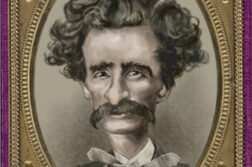IT MAY SEEM difficult to say anything new and fresh about same-sex desire and love in the ancient Greek and Roman world. After all, the publication of Sir Kenneth Dover’s Greek Homosexuality in 1978, the first major publication in the English-speaking world since John Addington Symond’s seminal A Problem in Greek Ethics (1901), which could only be printed privately in late Victorian England, was followed by a veritable outpouring of books and articles which continues today. Germany had already a tradition of an at times semi-covert scholarship going back well over a century before Dover, culminating in the lengthy section on the classical world in Magnus Hirschfeld’s magisterial The Homosexuality of Men and Women and in the numerous writings of Hans Licht (pseudonym of the classicist Paul Brandt) on Greek pederasty. Nevertheless, it was Dover’s book that brought the subject, and indeed the in-depth discussion of sexuality as a whole, out of the closet, so to speak, in classical scholarship worldwide. But, apart from refining what Dover said a quarter-century ago, have any new insights emerged?
IT MAY SEEM difficult to say anything new and fresh about same-sex desire and love in the ancient Greek and Roman world. After all, the publication of Sir Kenneth Dover’s Greek Homosexuality in 1978, ... was followed by a veritable outpouring of books and articles which continues today. ... But, apart from refining what Dover said a quarter-century ago, have any new insights emerged? ...
New Pedagogy on Ancient Pederasty
 This article is only a portion of the full article. If you are already a premium subscriber please login. If you are not a premium subscriber, please subscribe for access to all of our content.
This article is only a portion of the full article. If you are already a premium subscriber please login. If you are not a premium subscriber, please subscribe for access to all of our content.
0
Published in: May-June 2004 issue.






